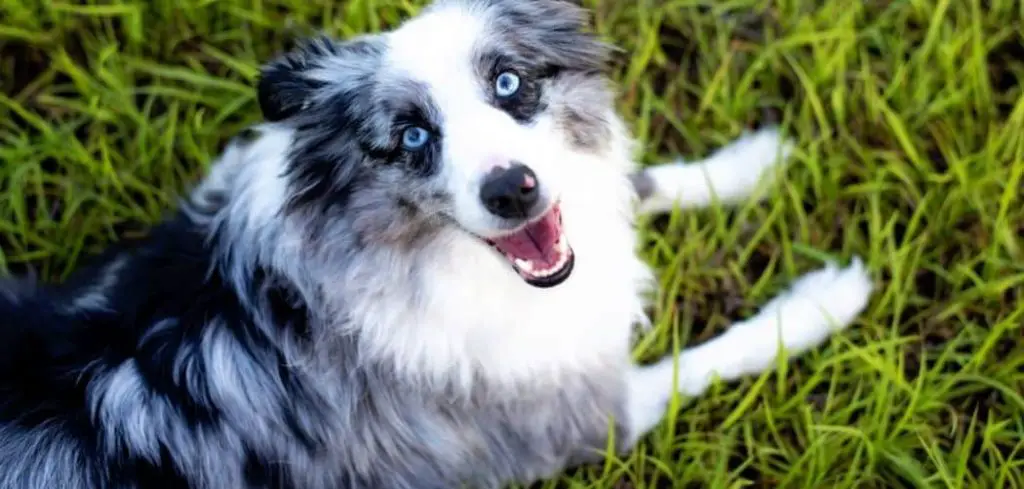If a dog is constantly licking, it can be a sign of much more than just grooming. While occasional licking is normal, persistent licking often points to irritation or even underlying medical or behavioral conditions.
We outline the common reasons a dog may constantly lick themselves, what you can do at home, and when to seek veterinary help.
Dog Constantly Licking — Why It Happens
Dogs may constantly lick themselves due to allergies, skin infections, pain, parasites, or behavioral issues like stress and anxiety. Sometimes the behavior is linked to medical conditions such as arthritis, gastrointestinal problems, or wounds that cause discomfort. In other cases, licking can develop into a compulsive habit if left unchecked.

Dog Constantly Licking: Common Causes
Allergies
Allergies are one of the most common triggers for constant licking. Dogs with food sensitivities, environmental allergies to pollen, or reactions to flea bites may lick their paws, belly, or other body parts excessively.
This licking is often the dog’s attempt to relieve itching, but it usually makes the skin more irritated and can lead to secondary infections.
Owners may also notice red patches, hair loss, or recurrent ear infections alongside the licking.
Read more: Dog Constantly Licking Paws (What it could mean)
Skin Infections
Bacterial or yeast infections can make a dog’s skin itchy, moist, and uncomfortable. Dogs often lick the affected areas nonstop in an attempt to soothe the irritation.
Signs of infection may include redness, foul odor, discharge, or greasy skin. Licking only worsens the infection, spreading it and preventing the skin from healing. Veterinary care is usually needed to clear the infection with appropriate treatment.
Pain or Arthritis
Sometimes licking is a response to pain rather than itchiness. Dogs with arthritis or joint discomfort may lick at their legs, paws, or hips where they feel sore.
Owners may notice stiffness, limping, or reluctance to exercise along with licking. This form of licking is a coping mechanism, but it signals that the dog may need pain management and supportive care.
Parasites
External parasites like fleas, ticks, and mites are notorious for causing constant licking. Dogs may focus on specific areas, such as their paws, tail base, or belly, depending on where the parasites are biting.
Flea allergy dermatitis is particularly severe, as even a few flea bites can lead to nonstop itching and licking. If parasites are the cause, scratching, hair loss, or visible flea dirt may also be present.
Anxiety or Stress
In some cases, dogs lick constantly not because of a physical issue but as a response to stress or anxiety. Licking releases endorphins that temporarily calm them, similar to how humans may bite their nails.
This behavior can become compulsive if left untreated, leading to lick granulomas (thickened, irritated skin patches). Stress-related licking often happens when a dog is bored, left alone, or facing changes in their environment.
Gastrointestinal Discomfort
Dogs sometimes lick surfaces, objects, or themselves excessively when they have stomach upset or nausea. This type of licking can be seen when dogs eat grass or obsessively lick their lips and paws.
Underlying gastrointestinal problems, such as acid reflux or dietary intolerance, may trigger this behavior.
While not as obvious as skin-related causes, it’s an important possibility to consider if licking appears paired with digestive changes.
What to Do If Your Dog Is Constantly Licking
If your dog is constantly licking, start by checking for visible signs of irritation, wounds, or parasites. Gently inspect the skin and paws for redness, swelling, or debris.
For mild irritation, cleaning the area with a pet-safe antiseptic can reduce the risk of infection. Regular flea and tick prevention is also crucial in reducing parasite-driven licking.
If you suspect allergies, wiping your dog’s paws after walks and monitoring diet changes may help. Some dogs benefit from hypoallergenic foods or veterinary-prescribed allergy medications.
For stress-related licking, provide enrichment through toys, exercise, and mental stimulation. Keeping a predictable routine can also reduce anxiety that drives compulsive behaviors.
An Elizabethan collar may be helpful in preventing self-trauma, but it’s best used alongside treating the underlying cause rather than as a standalone fix.
When to Call or Visit Your Vet
If your dog’s licking persists beyond a few days, veterinary care is recommended. Constant licking that leads to hair loss, sores, or bleeding needs immediate attention.
Seek urgent care if your dog’s licking is accompanied by limping, swelling, vomiting, or signs of severe discomfort. These may point to infections, arthritis, or gastrointestinal problems.
If licking becomes compulsive and your dog cannot stop, it is also a red flag. Behavioral licking can be just as damaging as medical causes, leading to open wounds and chronic infections.
Veterinary examination ensures that your dog’s discomfort is properly diagnosed and treated before it becomes a bigger health issue.
Read more: Dog Constantly Panting (Why it happens and what to do)
Key Takeaway
A dog constantly licking is not just a quirky habit but often a signal of discomfort or an underlying health issue. Allergies, infections, pain, parasites, stress, and even digestive problems can all play a role in this behavior.
While mild cases may improve with home care, persistent licking deserves veterinary attention to identify and treat the root cause. Supporting your dog with care, comfort, and timely medical help will bring relief and protect their long-term well-being.
By taking action early, you not only stop the cycle of licking but also ensure your dog feels comfortable, happy, and healthy.
